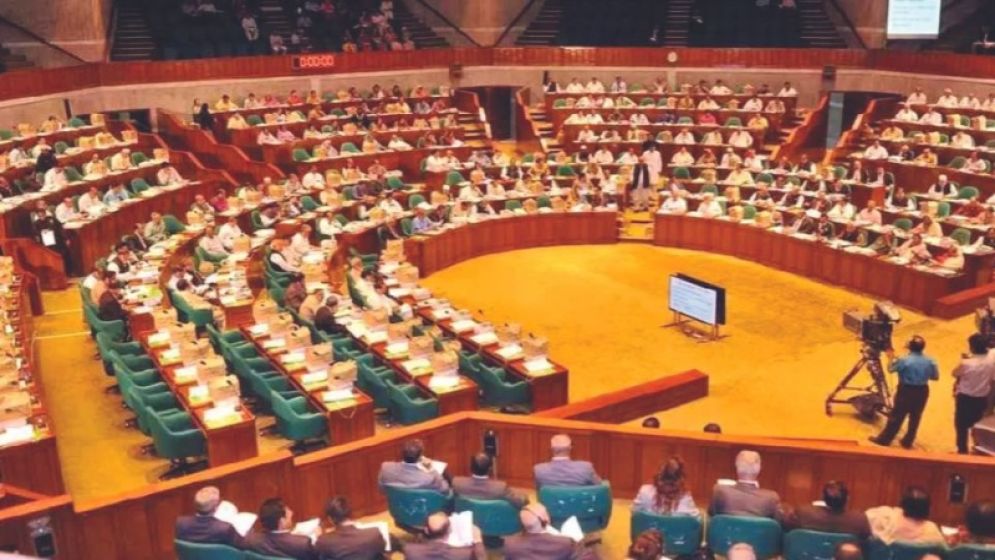MPs express concern on government’s failure to control inflation and commodity prices

In a heated parliamentary session today, members of the National Parliament expressed strong concerns over the escalating commodity prices, placing blame on the Ministry of Commerce for its perceived failure to break up syndicates and ensure the availability of essential goods for the poor.
While acknowledging the ministry's limited power in controlling prices, MPs stressed the government's responsibility to stabilize the market and address the ongoing crisis.
In a separate development, the parliament passed the 'Bangladesh Trade and Tariff Commission (Amendment) Bill-2024,' which aims to modify the position of the Secretary of the Bangladesh Trade and Tariff Commission.
Commerce Minister Ahsanul Islam introduced the bill in Parliament for approval. Following public opinion verification, referral to the selection committee, and amendments, the bill was ultimately passed via voice vote.
Under the newly passed amendment, the position formerly known as "Secretary" within the Bangladesh Trade and Tariff Commission will now be titled "Director (Administration and Finance)".
During discussions on the bill, National Party MP Hafiz Uddin Ahmed emphasized the Ministry of Commerce's responsibility for managing commodity prices and highlighted the TCB's role in providing goods at fair prices.
He pointed out that while the TCB offers a card allowing purchases of essential items, many individuals cannot access it. He further emphasized that the Ministry of Commerce should ensure essential goods are available where needed.
Hafiz Uddin Ahmed has highlighted that prices across all products in the market have risen. He expressed concern over the unreasonable increase in medicine prices, noting that pharmaceutical companies are reaping substantial profits whose destinations remain unclear.
Despite importing raw materials at low tariffs, the resultant prices in our country remain high, he said, adding that controlling medicine prices would directly benefit public healthcare.
Highlighting profit margins of some local pharmaceutical companies as high as hundreds of percent and noting the absence of price tags on many medications, he urged the Ministry of Commerce to enforce market regulations.
He underscored this as a pressing issue affecting the populace, criticizing the government for failing to manage the market despite significant developmental strides by the Awami League.
During discussions, independent MP Pankaj Nath expressed concerns that the new Trade and Tariff bill does not prioritize the interests of the people.
He stressed that these interests can only be met if the Tariff Commission takes on the responsibilities of regulating prices for essential and everyday items, ensuring market accessibility, and coordinating imports and production to facilitate easy access to goods.
Pankaj Nath advocated for dismantling syndicates to improve access to daily necessities for the impoverished, urging the government to strengthen the Commission's role.
Referring to the recent change from "secretary" to "official" at the union council, he questioned the significance and implications of this alteration.
—

